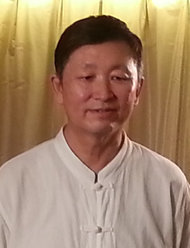In an interview with The New York Times, scholar Zhang Lifan discusses a recent flaring of anti-Western rhetoric and suspicion of “hostile foreign forces” in mainland China and in Hong Kong. President Xi Jinping has dismissed the trend as not “worth fussing over”, but lavished praise on the “positive energy” of nationalistic young blogger Zhou Xiaoping.
Q. What viewpoint do you think Zhou Xiaoping represents in his writing, and what is the overall message of his essays?
A. Zhou Xiaoping doesn’t have his own viewpoint. He is not a person with his own independent thinking. He focuses on figuring out what the leadership wants and delivers just that. He has figured out that the leadership wants the people to blame foreign countries for various conflicts in society and has been promoting nationalism and anti-foreign sentiment ever since.
[…] Q. Is Zhou Xiaoping representative of a wider and increasingly popular anti-foreign sentiment within the Chinese political establishment?
A. Members of the Chinese political establishment are not anti-foreign themselves. Xi sent his own daughter to be educated to the United States. [The daughter, Xi Mingze, was a recent undergraduate at Harvard University.] The anti-foreign sentiment is merely a political necessity. The people have many grievances, because income disparity has reached crisis levels. The political establishment needs the public to turn their rage toward foreign countries. [Source]
The view that sharp inequality poses an urgent threat to China’s stability is widespread, but not universally accepted. The country’s richest man, beverage tycoon Zong Qinghou, suggested last year that so long as general prosperity is rising, the wealth gap should not be a priority. Harvard sociologist Martin King Whyte has argued similarly, but added that there is a real danger from political rather than economic inequality.








